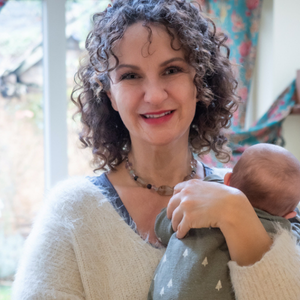Planning Your Positive Breastfeeding Journey

Preparing for Breastfeeding with Confidence – A Conversation with Jaimie Zaki
When we think about preparing for life after birth, so often the focus is on the birth itself. We create detailed birth plans, read all the books, and think through every possibility — yet many of us assume that breastfeeding will simply happen naturally. For many parents, the reality is a shock.
That’s why I was so delighted to sit down with Jaimie Zaki, an International Board Certified Lactation Consultant (IBCLC), mother of five, and host of the Breastfeeding With Confidence Podcast. Since 2016, Jaimie has been supporting mothers through pregnancy, birth, and postpartum, offering holistic breastfeeding guidance that combines solid information with the power of intuition.
Why breastfeeding preparation matters
Jaimie often hears from new mothers who tell her, “I thought this would just happen naturally — no one told me it could be so hard.” She explained that waiting until your baby is in your arms to learn about breastfeeding is like trying to learn how to swim while you’re already drowning. Exhaustion, hormones, and the emotions of those first days can make it incredibly difficult to take in new information.
Instead, Jaimie encourages expectant parents to create a breastfeeding plan before baby arrives, just as you would a birth plan. This means learning not only the basics of latch and supply, but also preparing for the unexpected — from delays in milk coming in, to the impact of interventions such as IV fluids or C-sections.
The golden hours after birth
One of the most magical parts of our conversation was about the “golden hours” after birth. If left undisturbed, a newborn’s instincts guide them to crawl up to the breast and self-attach for their first feed. Protecting this quiet time with skin-to-skin contact allows both mother and baby to regulate, bond, and begin their feeding journey from a place of calm.
Of course, hospital policies, time pressures, and medical needs can sometimes interrupt these hours. Jaimie reminds us that knowing how to advocate for yourself — and understanding your options — is key. Breastfeeding success is not about perfection, but about feeling empowered to make informed choices.
The role of support
Another theme we explored was the importance of community. For thousands of years, breastfeeding was learned through observation: daughters saw their mothers, sisters, and aunts nurse babies long before they became mothers themselves. Today, many of us have lost that village of lived experience.
That’s why support from partners, doulas, friends, and lactation consultants is so crucial. As Jaimie shared, breastfeeding is the only physiological process that humans can’t succeed at alone — it requires others around us to hold, guide, and nourish the mother so she can nourish her baby.
Jaimie’s top three tips
To close our chat, Jaimie shared her three top tips for a positive breastfeeding journey:
-
Stay humble and open to learning — it’s okay not to know everything.
-
Prepare ahead of time — gather resources and create your plan, while leaving space for intuition.
-
Prioritise your own well-being — sleep, nutrition, and nervous system regulation make everything easier.
Her message was simple and powerful: breastfeeding doesn’t have to be perfect to be positive.
Listen to the full conversation
Our conversation was rich with wisdom, honesty, and encouragement. If you’re expecting a baby, supporting new parents, or simply curious about how we can better prepare families for postpartum, I invite you to listen in.
🎧 Listen here on Spotify or by searching for Slow Postpartum wherever you get your pods.
View Jaimie's extensive breastfeeding resource library here.

About Jojo & The Slow Postpartum Movement™
Jojo Hogan is a postpartum doula, massage therapist, yoga teacher, and founder of the international Slow Postpartum Movement™. With over 20 years of experience caring for mothers, babies, and families, Jojo helps parents plan and enjoy a peaceful, supported, and deeply nourishing postpartum. Through her podcast, trainings, and one-to-one support, she is on a mission to change the way society views the weeks after birth — from a time of struggle and isolation to one of rest, love, and transformation. Find out more here.
Categories: : birth, breastfeeding, motherhood, parenting, Postnatal, Postpartum
 Jojo Hogan
Jojo Hogan 